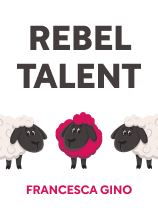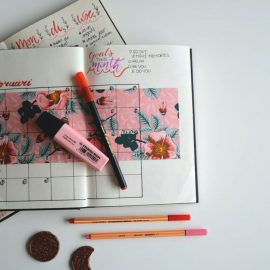

This article is an excerpt from the Shortform book guide to "Rebel Talent" by Francesca Gino. Shortform has the world's best summaries and analyses of books you should be reading.
Like this article? Sign up for a free trial here.
What are the benefits of trying new things? Why should you break the rules every once in a while?
In Rebel Talent, Francesca Gino explains that you should step outside your comfort zone if you want to be a true rebel. This will help you test your limits and learn about yourself so you can grow as a person.
Here’s why trying new things can make you a better person.
Why Trying New Things Is Important, Even When It’s Hard
Reason 1: Embracing the unexpected can challenge you and help you grow.
The first benefit of trying new things is that it will help you grow. Gino says it can be difficult to embrace new things because society is steeped in rituals and traditions that communicate and foster important value systems and give us a sense of meaning, connection, and comfort.
But when you accept things as they are simply because they’ve always been done a certain way, you can stagnate and lose out on valuable experience that comes with making difficult decisions. Staying in your comfort zone may feel safe but isn’t always the recipe for growth and happiness.
When you try new things and gain new skills, Gino says, your sense of self and the way you talk about yourself expand; you become more confident in your ability to do new things; and your tolerance for uncertainty increases, which helps you achieve your goals even when you encounter bumps in the road.
Reason 2: Variety brings out your best at work and home.
Gino’s research finds that one benefit of trying new things is that employees are happier and companies thrive when workers’ daily lives center on a variety of activities rather than on doing the same task repeatedly. And trying new things fuels pleasure in personal relationships by creating an element of uncertainty and surprise.
(Shortform note: When employees lack variety and challenge at work for prolonged periods of time, they can experience an extreme form of chronic boredom called “boreout.” A close kin to “burnout,” boreout manifests when employees are bored silly for so long that everything they do at work feels pointless and meaningless. Boreout has been linked to insomnia and headaches, increased stress, depression, anxiety, and employee turnover.)
Avoiding boredom is important for relationships too. Gino cites a 1983 study by psychologist Arthur Aron showing that excitement and challenge improve relationships. Another study of 274 married people found that couples who had been together more than a decade and reported being “ intensely in love” frequently did new activities together. (Shortform note: “Surprise expert” and author Tania Luna explains that newness improves relationships by introducing surprise and anticipation, both of which boost levels of dopamine in your brain, which sets off feelings of attraction and excitement.)
Leave Your Comfort Zone to Build Your Capacity for Happiness
It’s not just rituals and traditions that keep you from seeking out the benefits of trying new things, it’s also your “survive brain,” which seeks to keep you safe but is hardwired with a negativity bias that overestimates threats to your well-being. This can lead to “uncertainty intolerance,” which can increase risk aversion and make you less inclined to try new things. The good news is that you can increase your tolerance of uncertainty by figuring out what you can and cannot control, and looking for the upsides of a given situation. And every time you try new things, you become more likely and better able to continue.
Confidence also plays a role in breaking out of your comfort zone. In Ultralearning, Scott Young argues that if you believe you have the capacity to grow and pursue growth, you will grow. Similarly, in The Confidence Code, Katty Kay and Claire Shipman assert that the confidence you gain from mastering one thing gives you additional confidence to try new things. This growth and confidence are critical because as we continue to shed the familiar for the new and unknown, we’re more likely to find happiness.
The reverse is also true. Hacking Happiness author, Penny Locaso, spent three years conducting interviews and workshops to try to understand what makes people feel fulfilled, and she found that “distraction, fear, and a lack of curiosity about oneself, others, and the world in general” were the three biggest obstacles to living a happy life.

———End of Preview———
Like what you just read? Read the rest of the world's best book summary and analysis of Francesca Gino's "Rebel Talent" at Shortform.
Here's what you'll find in our full Rebel Talent summary:
- Why you should tap into your inner rule breaker
- A guide on how to break the rules constructively
- The three principles for becoming a rebel leader






